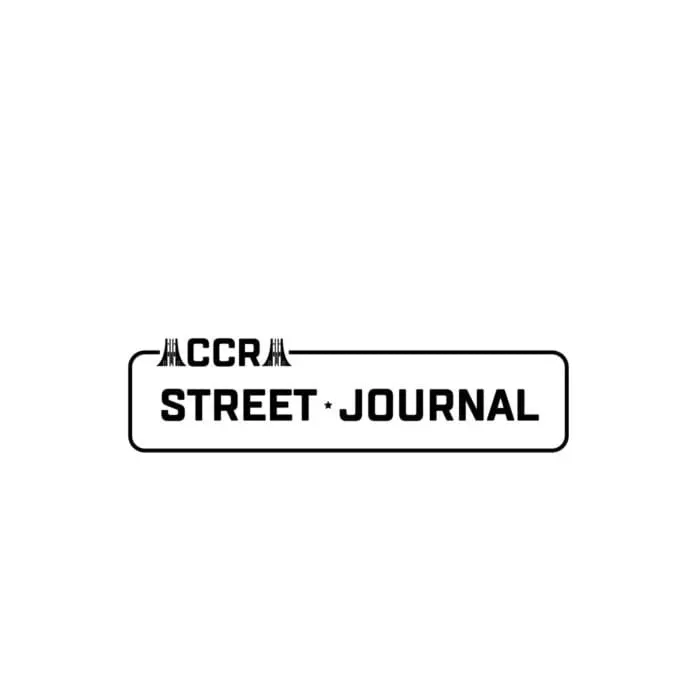By Ghana News
Copyright ghanamma

Samuel Kwame Boadu transforms digital journalism landscape with Accra Street Journal, creating platform focused on everyday Ghanaian experiences and community-driven storytelling.
Accra Street Journal has emerged as a dynamic digital platform committed to delivering bold, practical, and insightful journalism from the streets of Ghana to the world, focusing on real issues spanning business, governance, lifestyle, tech, health, culture, and everyday street realities. The publication launched in February 2025 under the leadership of Samuel Kwame Boadu, who serves as founding editor and chief executive officer of parent company SamBoad Business Group Limited.
Boadu established the journal with a clear mission to differentiate from Ghana’s crowded media landscape by prioritizing street-level perspectives often overlooked by mainstream institutions. The platform describes its approach as “clear, fact-based, street-smart reporting and opinion pieces that connect everyday Ghanaians with information they can trust.”
Samuel Kwame Boadu brings over a decade of experience in brand communications, publishing, sports business, and technology-driven storytelling to his role as founder and chief executive officer of SamBoad Business Group Limited. His business interests encompass multiple industries including media, digital marketing, branding, and technology consulting services.
The publication has gained recognition for investigative work addressing public health concerns and economic policy analysis. Recent investigative coverage by Accra Street Journal examined unregulated caffeine imports and energy drink sales creating health risks in Ghana, particularly among youth populations. The outlet has also provided analysis of Ghana’s economic policies, including mid-year budget assessments and fiscal reform impacts.
Accra Street Journal operates as part of SamBoad Publishing Limited, a subsidiary within Boadu’s diversified business group. The integration provides logistical and financial support while maintaining editorial independence for original reporting, investigative journalism, and opinion editorials targeting digital-first audiences.
The platform’s content strategy combines traditional journalism principles with contemporary digital distribution methods. Coverage areas include business developments, governmental policy analysis, lifestyle trends, technological innovations, healthcare issues, cultural developments, and sports reporting. The journal emphasizes connecting national developments with local community impacts.
Boadu emphasizes authenticity in his editorial approach, drawing inspiration from conversations in Accra’s markets, public transportation systems, and community gathering places. This grounding in everyday experiences distinguishes the publication from competitor outlets that may lack direct community engagement.
The journal has provided economic analysis including coverage of Ghana’s inflation reduction from over 54% in early 2023 to 22.6% as of June 2025, alongside government revenue mobilization efforts through digital tax compliance and revised Value Added Tax (VAT) enforcement.
The publication’s growth trajectory reflects increasing demand for locally-owned media platforms that maintain African authenticity while competing with global news sources. Boadu advocates for creating indigenous media spaces capable of international reach without compromising local relevance and cultural understanding.
Early recognition includes profiles by established Ghanaian media outlets highlighting the journal’s rapid establishment within the country’s digital ecosystem. The platform has developed partnerships with other news organizations for content distribution while maintaining independent editorial control.
Accra Street Journal’s business model incorporates multiple revenue streams including advertising partnerships, sponsored content, and potential subscription services. The diversified approach aims to ensure financial sustainability while preserving editorial independence from external pressures.
The publication represents broader trends in African digital media development, where local entrepreneurs create platforms addressing community-specific information needs while building commercially viable news organizations. Boadu’s success demonstrates potential for indigenous media companies to establish strong market positions against international competitors.
Looking ahead, the journal aims to expand coverage areas while maintaining focus on street-level perspectives that differentiate the platform. Plans include increased investigative reporting, expanded multimedia content, and potential partnerships with other African media organizations.
The venture showcases how contemporary African entrepreneurs leverage digital technologies to create media platforms serving local communities while building sustainable business models. Boadu’s approach demonstrates successful integration of community engagement, professional journalism standards, and commercial viability in emerging market media development.



